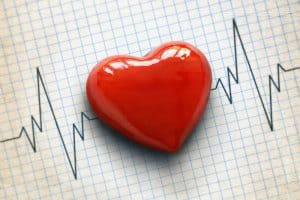HESI Cardiac Safety Committee presents at the American College of Toxicology Annual Meeting, November 2023, Orlando, Florida, USA.
American College of Toxicology 2023 Annual Meeting
November 12, 2023 – November 15, 2023
Orlando, Florida, USA

The mission of the HESI Cardiac Safety Committee is to improve public health by reducing unanticipated cardiovascular-related adverse effects from drugs or chemicals, and to develop innovative approaches to support early detection and prediction as well as improved understanding of cardiovascular toxicology and pathobiology.
 Cardiac Safety Early Career Seminar Award Series
Cardiac Safety Early Career Seminar Award SeriesThe Cardiac Safety Steering Team is proud to present the second webinar series featuring the 2024 Early Career Seminar Series Awardees.
This competitive award is given to postdoctoral or early career scientists who have compelling research related to cardiovascular safety and risk assessment.
Three awardees were selected for the 2024 Seminar Series:
For webinar link contact: HESI Cardiac Safety cardiacsafety@hesiglobal.org
Past Award Winners
This group is working to understand and characterize use of stem cell–derived cardiomyocytes in cardiac safety assessments. An article that included best practices for use of stem cell cardiomyocytes in cardiac safety assessments was published in Regulatory Toxicology and Pharmacology. A new group is planning a study to explore in vitro assay ability to detect cardiotoxicity.
Leadership Team:
Ksenia Blinova, PhD (US Food and Drug Administration)
Godfrey Smith, PhD (University of Glasgow)
HESI Staff:
Jennifer Pierson, MPH
This working group is dedicated to investigating mechanisms of proarrhythmic risk. They continue to collaborate with the CiPA Initiative and ICH, and recently published its anticipated high throughput systems (HTS) ion channel work. A new subteam is scoping a conduction/ sodium channel paper to discuss the history and challenges surrounding this topic.
A 3-phased project was conducted by the HESI Pro-Arrhythmia Working Group starting with a detailed literature review and followed by a collaborative HESI-FDA database of 150 new drug candidates to evaluate how predictive nonclinical studies are to clinical outcomes.
Leadership Team:
Jose Vicente Ruize, PhD (US Food and Drug Administration)
Jean-Pierre Valentin, PhD (UCB Biopharma)
HESI Staff:
Jennifer Pierson, MPH
This working group has examined the sensitivity within a preclinical species to assess the function of contractility. They continue their partnership with University of Surrey and Imperial College London on a mathematical model to predict blood pressure changes. The Implanted Telemetry Subteam explored the impact of telemetry lead placement in toxicology studies (a collaboration with the Pro-Arrhythmia Working Group).
Leadership Team:
Michael Pugsley, PhD (Cytokinetics)
Sandy Eldridge, PhD (National Cancer Institute)
HESI Staff:
E’Lissa Flores, PhD
This working group is dedicated to investigating preclinical cardiac biomarkers of hypercoagulability induced under a thrombotic state, in both normal and diseased states. A manuscript was submitted detailing a study investigating the effects of doxorubicin in Zucker diabetic fatty rats. A new study is in the planning stages using xenobiotics to induce the procoagulant state and confirm measurements of biomarkers of interest.
Leadership Team:
Eric Schultze, PhD (Eli Lilly & Company)
Marjory Brooks, DVM (Cornell University)
HESI Staff:
E’Lissa Flores, PhD
The Cardiac Safety Steering Team established this new subteam in early 2020 to develop and provide a structured resource for use when identifying compounds appropriate in a planned committee study. Delivery of this publicly accessible database is anticipated by the end of 2022.
HESI Staff:
Jennifer Pierson, MPH
HESI has been awarded a multi-year U01 grant from the US FDA on the “Evaluation of Integrated Human-Relevant Approaches to Identify Drug Induced Cardiovascular Liabilities.” This grant supports HESI in funding and managing novel, in vitro experimental studies to develop targeted mechanistic data to inform drug safety assessment for key cardiac “failure modes.”
HESI received a Broad Agency Announcement (BAA) award from the US FDA to manage a multi-site study on manual and automated patch clamp platforms. The original study included 4 ionic currents (hERG, Nav1.5 peak, Nav1.5 late and Cav1.2) and 14 compounds and has been expanded to include a total of 28 compounds. The project aims to collect additional information on inter-laboratory variability as well as support the FDA in silico model. Learn more about the recommended ion channel protocols and in silico model here.

Associate Director for Program Development & Resourcing
jpierson@hesiglobal.org

UCB

US Food and Drug Administration
Click box below to view full poster
November 12, 2023 – November 15, 2023
Orlando, Florida, USA
HESI Cardiac Safety Committee presents at the American College of Toxicology Annual Meeting, November 2023, Orlando, Florida, USA.
September 18, 2023 – September 21, 2023
Brussels, Belgium
A number of HESI Committees will be presenting at the 2023 SPS Annual Meeting.
August 27, 2023 – August 31, 2023
Niagara Falls, Canada
HESI members present at the World Congress on Alternatives and Animal Use in the Life Sciences.
May 19, 2023
HESI Cardiac Safety Early Career Webinar Series, Virtual
The HESI Cardiac Safety Committee is pleased to announce the second webinar in their 2023 Early Career Seminar Award Series. This competitive award is given to postdoctoral or early career scientists who have compelling research related to cardiovascular safety and risk assessment, and the webinar series offers an opportunity ...
April 28, 2023
HESI Cardiac Safety Early Career Webinar Series, Virtual
The HESI Cardiac Safety Committee is pleased to announce the first webinar in their 2023 Early Career Seminar Award Series. This competitive award is given to postdoctoral or early career scientists who have compelling research related to cardiovascular safety and risk assessment, and the webinar series offers an opportunity ...
April 6, 2023
Virtual, Internal Committee Meeting
The HESI Cardiac Safety Committee will convene their annual business meeting on 6 April 2023. The mission of the HESI Cardiac Safety Committee is to improve public health by reducing unanticipated cardiovascular-related adverse effects from drugs or chemicals, and to develop innovative approaches to support early detection ...
Progress in Pediatric Cardiology, 2014
Marked successes in treating a wide variety of malignancies in both adults and children have raised concerns about the cardiotoxic sequelae of several mainstream and emerging cancer therapies.
American Heart Journal, 2014
This white paper provides a summary of a scientific proposal presented at a Cardiac Safety Research Consortium/Health and Environmental Sciences Institute/Food and Drug Administration–sponsored Think Tank, held at Food and Drug Administration's White Oak facilities, Silver Spring, MD, on July 23, 2013, with the intention ...
Regulatory Toxicology and Pharmacology, 2020
Human stem cell-derived cardiomyocytes (hSC-CMs) hold great promise as in vitro models to study the electrophysiological effects of novel drug candidates on human ventricular repolarization. Two recent large validation studies have demonstrated the ability of hSC-CMs to detect drug-induced delayed ...
Toxicological Sciences, 2022
New publication in Toxicological Sciences by the HESI Cardiac Safety Committee shows that nonclinical models used to predict cardiac safety during drug development do not absolutely replicate the clinical conditions; however, best practices can be used to improve the nonclinical assay quality and achieve the ...
Journal of Pharmacological and Toxicological Methods, 2016
The implementation of the ICH S7B and E14 guidelines has been successful in preventing the introduction of potentially torsadogenic drugs to the market, but it has also unduly constrained drug development by focusing on hERG block and QT prolongation as essential determinants of proarrhythmia risk.
Journal of Pharmacological and Toxicological Methods, 2015
Drug-induced effects on the cardiovascular system remain a major cause of drug attrition.
hesi@hesiglobal.org
Phone: +1-202-659-8404
Fax: +1-202-659-3859
740 15th Street NW, Suite 600
Washington, DC 20005
Sign up for our monthly e-newsletter.